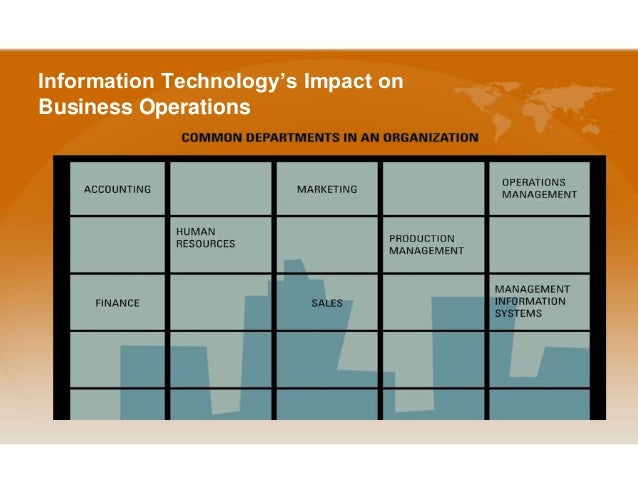BUSINESS DRIVEN TECHNOLOGY
Learning Outcomes
- Compare management information systems (MIS) and information technology (IT).
- Describe the relationships among people, information technology, and information.
- Identify four different departments in a typical business and explain how technology helps them to work together.
- Compare the four different types of organizational information cultures and decide which culture applies to you.
Information Technology's Impact on Business Operations

Customer service higher than others because people always call customer service if they need help.



- Organizations typically operate by functional areas or functional silos.
- Functional areas are interdependent.
Information Technology Basics
Data - raw facts that describe the characteristics of an event.
Information - data converted into a meaningful and useful context.
Business Intelligence - applications and technologies that are used to support decision making efforts.



IT Resources

IT Cultures
Organizational information cultures include :
- Information-functional culture ; Employees use information as a means of exersicing influence or power over others.
- Information-sharing culture : Employees across departments trust each other to use information.
- Information-inquiring culture : Employees across department search for information to better understand the future.
- Information-discovery culture : Employees across department are open to new insights about crisis.




No comments:
Post a Comment